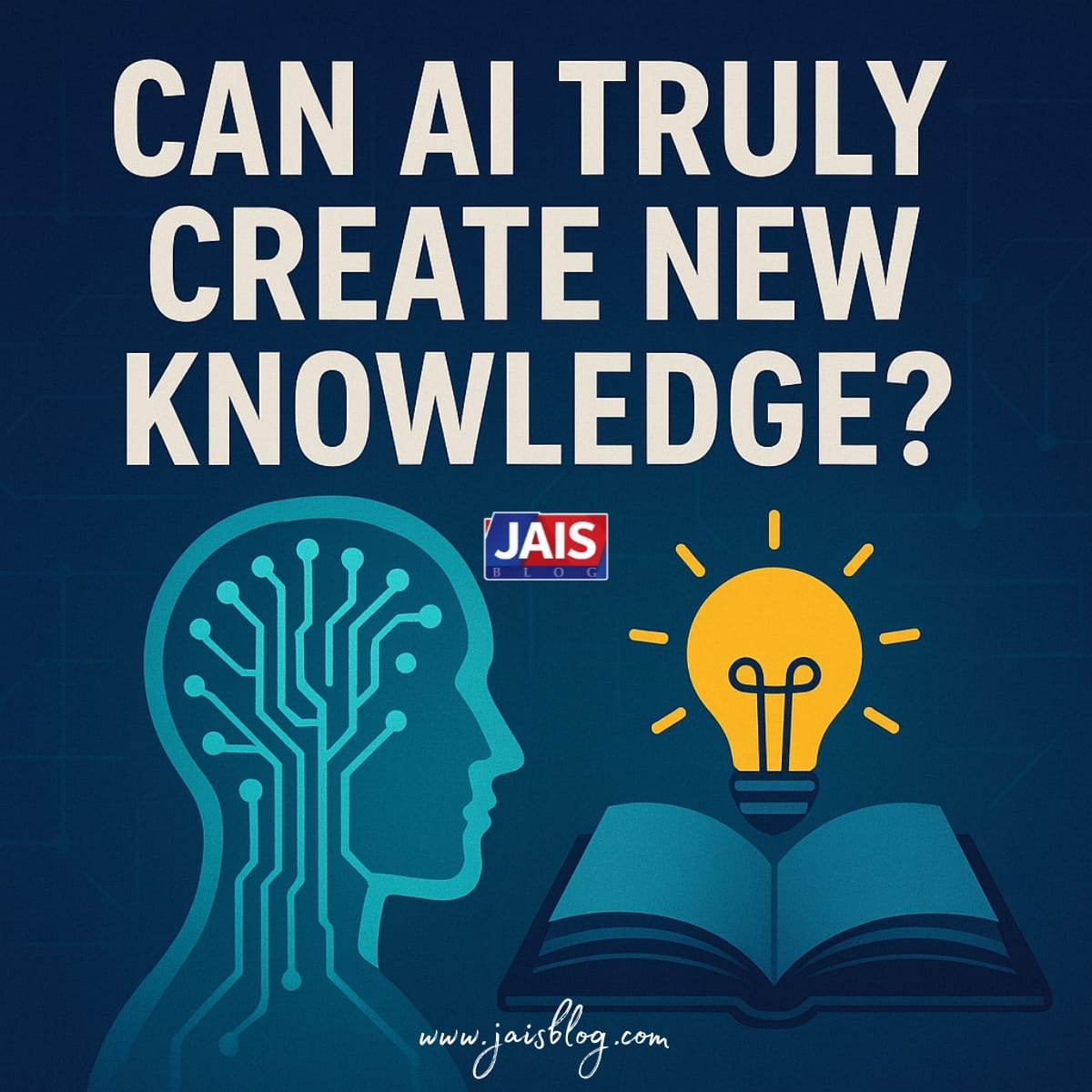One question looms large in a world where artificial intelligence is shaping things more and more: Can AI really create new knowledge, and if so, what are its limitations
Thank you for reading this post, don't forget to subscribe!In many areas, AI systems are already better than humans, from writing poetry to figuring out how proteins fold. But there is a thin, maybe even deep, line between processing existing information and making something completely new. We need to look into what it means to “know,” how AI thinks, and where machine intelligence is fundamentally different from human creativity and discovery in order to figure out the limits of AI-generated knowledge.
What Does It Really Mean to “Make Knowledge”?
We need to first define “knowledge generation.” Usually, this means finding truths or insights that weren’t known before. It could be new scientific theories, mathematical proofs, technological advances, or even original works of art. It’s not just recombination; it’s also about revelation, which means finding something new and useful.
AI can definitely make new arrangements of data, write text that sounds like it was written by a person, and even come up with new drugs. But is that truly knowing? Or is it just fancy remixing?
For many, knowledge means more than just being new. It also means understanding, which AI still lacks.
Where AI Excels
- Data-Driven Discovery
AI is the best at finding patterns in very large datasets, whether it’s finding new materials, making molecular structures work better, or finding strange things happening in physics experiments. AlphaFold’s huge step forward in predicting protein structures is a great example. It gave biologists accurate biological information they had been looking for decades.
2. Reasoning with math and logic
New developments, such as AI-assisted theorem provers, show that AI can find new proofs and work its way through complicated logical systems. But these systems usually only work in formalized settings with well-known rules. It’s still hard to find the “creative leap” in mathematics that people like Gödel or Ramanujan might have made.
3. Testing hypotheses and simulating them
AI can simulate environments and test ideas more quickly and in more areas than people ever could. This makes it possible to look into very large problem spaces, which is useful in areas like economics, climate modeling, and cosmology.
The Emerging Limits
AI still has a long way to go before it can produce truly new knowledge, despite the promise.
- Lack of Conscious Understanding
The world is not understood by AI models such as GPT-4 or its successors. They don’t create mental models of reality, challenge presumptions, or form beliefs. Their “knowledge” is statistical, superficial, and uncritical.
This restricts their capacity to:
Make thoughtful, original inquiries.
Determine the knowledge gaps that exist today.
Reasoning beyond the distribution of data
2. Grounding Problem
Grounding, or the capacity to relate language or symbols to actual meaning, is absent from AI. AI is unable to fully understand concepts related to perception, intention, or physical causality in the absence of embodiment or direct sensory experience. Its ability to produce experiential knowledge—such as that obtained through hands-on experimentation or intuitive insight—is hampered by this.
3. Breaking Constraints Is Necessary for Creativity
True innovation frequently entails defying the norms of a field, something AI is ill-equipped to do because it was trained on preexisting patterns. Human innovations are frequently the result of completely rephrasing an issue rather than merely optimizing within predetermined bounds.
4. Value and Purpose
Human values, objectives, and curiosity are frequently the driving forces behind the creation of knowledge. AI has no innate motivation or “why” for its endeavors. Without human direction, this makes it challenging for AI to rank the most important or influential research topics.
Do These Boundaries Last?
Not always. Some people think that these limitations might be removed with the development of artificial general intelligence (AGI). Emergent understanding, autonomous goal-setting, and embodied learning may all be incorporated into future AI.
However, it’s also possible that AI will never fully possess human abilities that are essential to discovery, such as consciousness, intuition, or moral reasoning. According to this perspective, artificial intelligence will always be a tool—a very powerful one—rather than the source of truly human knowledge.
The Future: Collaboration Rather Than Substitution
The most potent future may lie in human-AI cooperation rather than in replacing human discovery. By identifying patterns, formulating theories, and investigating possibilities that would take a human lifetime to investigate, AI can push the boundaries of what is possible.
We may still possess the philosophical framing of knowledge, the spark of inspiration, and the judgment of meaning.
Concluding remarks
AI is already changing the nature of knowledge by speeding up research, expanding analysis, and upending our preconceptions about intelligence in general. However, as we enter this new era, we need to acknowledge the enormous potential of machine-generated insight as well as its fundamental limitations.
True knowledge is a result of context, meaning, and thought as well as data and algorithms.

